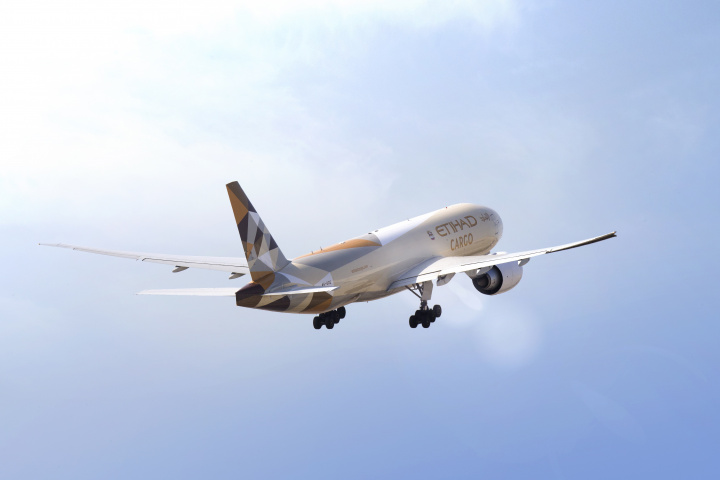Etihad Cargo evaluates its new technology platform six months after migrating
Etihad Cargo says it has achieved a step change in the way it runs its operations and engages with its customers six months after migrating to a new technology platform.
Last year, the carrier embarked on a strategy that saw the introduction of several transformation programs across its fleet and network, commercial and operational processes, and its physical and digital infrastructures.
Six months on, Etihad has managed a major distribution channel shift and proudly accepted 14.4% of its total bookings online since the October 2018 ‘go-live’ milestone.
Additionally, March 2019 has recorded the most successful performance yet with 16.4% of monthly bookings coming through the online portal, surpassing all records for similar portal launches for any other cargo carrier within the same period.
Etihad Cargo now has more than 6,000 unique registered users making online bookings every month, and the numbers are continuing to trend upwards (18.2% of the bookings were made online during the last week of March).
Building on this initial digital investment, round the clock work within Etihad Cargo continues with the carrier successfully completing trials for another major distribution channel, using automated Freight Forwarder Messaging (FFR) to instantly allow bookings to be made and confirmed.
“Etihad has made great strides in implementing the first phase of its digital ambitions over the past 18 months,” said Rory Fidler, head of technology and innovation, Etihad Cargo. “We placed investments in digital transformation and innovation at the core of our new strategy, underpinning a renewed customer-driven culture within the organization.”
“The fruits of that investment and hard work are transforming the way we interact and do business with our customers, and are opening up a multitude of future opportunities,” he added.
In addition to the real-time insights afforded by the IBS iCargo platform, the ongoing implementation of market-leading Customer Relationship Management software Salesforce, and use of Enterprise Business Intelligence will provide unprecedented visibility and insight into customer and market trends and developments once fully implemented later this year, allowing the business to remain agile and relevant to customers around the world.
“Within such a short period of time we have gone from being a very conventional air cargo operator, to being the most digitized air cargo carrier of our size globally,” added Fidler. “As we move forward, we will continue to invest in technology and seek to put ourselves at the forefront of the industry’s drive for digitalization.”


